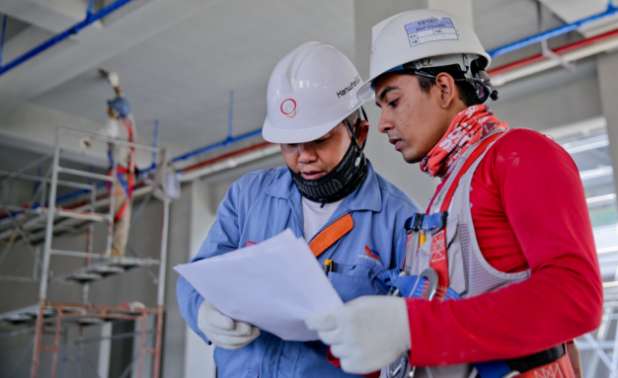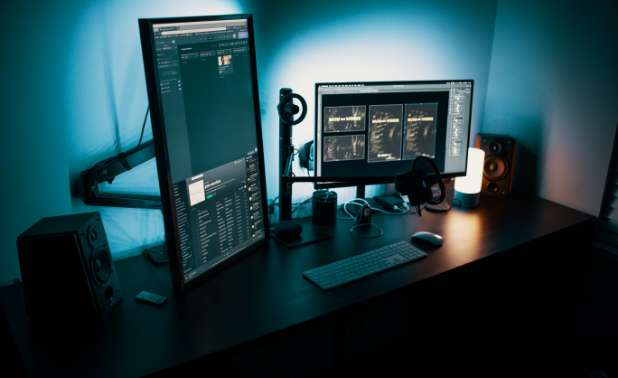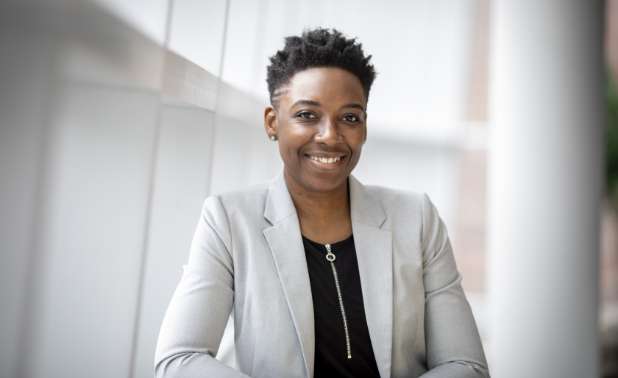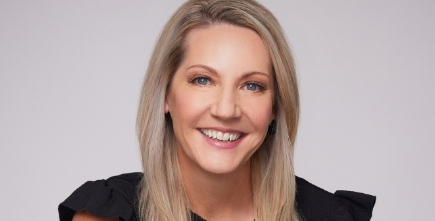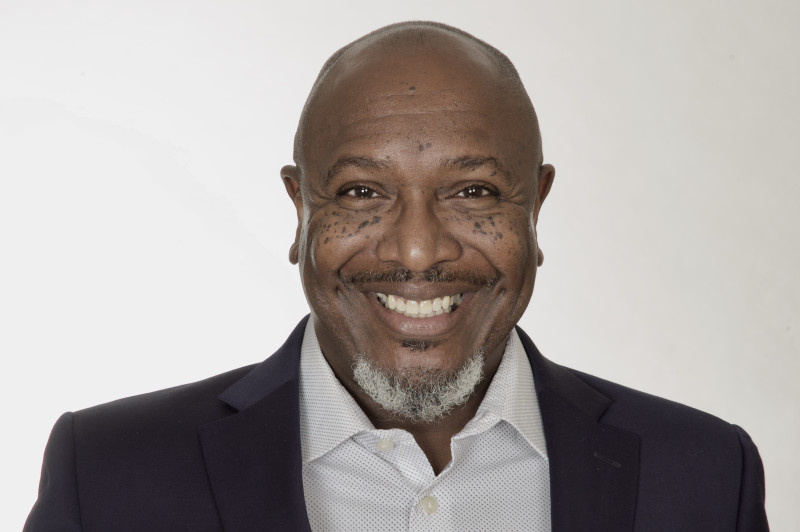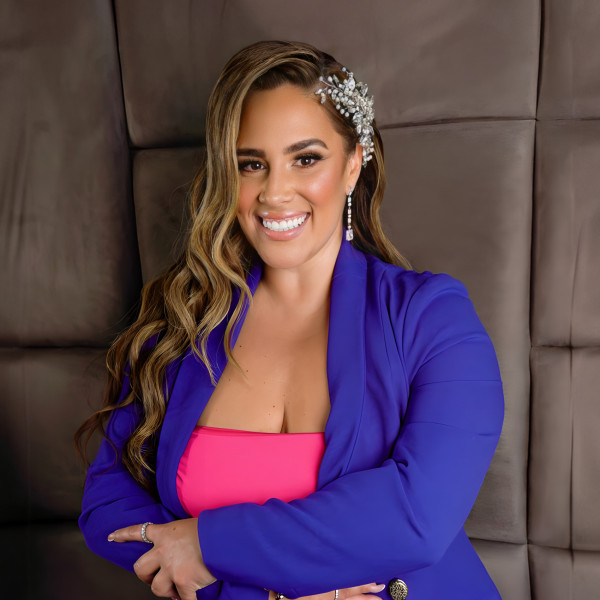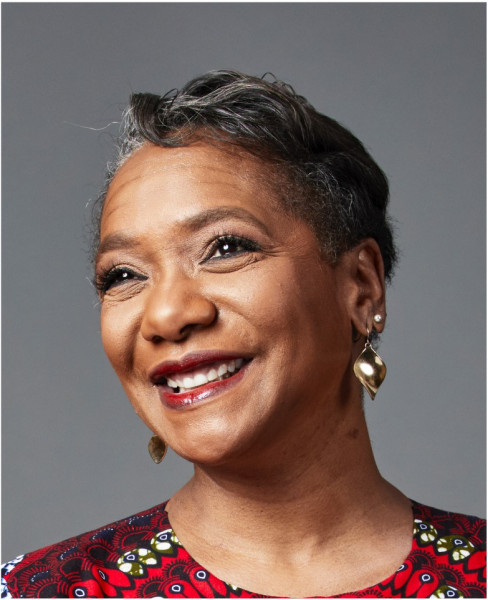Kamela Forbes:
Welcome to But First, People, a podcast on the incredible diversity of the world of work, brought to you by Pride Global. I’m your host, Kamela Forbes, and this week, my co-host Jenny Davis had the pleasure of speaking with Michelle D. Sims, CEO of Year Up Professional Resources, better known as YUPRO, which is a leading opportunity talent placement firm. Michelle’s award-winning tenure as YUPRO’s leader has included numerous mentions on SIA’s list of the industry’s biggest players. YUPRO has also been recognized as one of the fastest growing staffing firms in the country. YUPRO champions traditionally underrepresented talent placement, and this focus on diversity is a common feature of Michelle’s role. She mentors diverse young professionals at the School of Business Administration at Houston Community College, and she also serves as a member of the Women in Public Policy Programs board at Harvard Kennedy School, as well as on the American Staffing Association’s Women in Leadership Council. Today, she’s here to share a slice of that wisdom with you, our wonderful But First, People audience.
Jenny Davis:
Michelle Sims, so happy to have you on But First, People. Thank you so much for joining us today. It is such a pleasure to have you, and I really look forward to our conversation this morning!
Michelle Sims:
Thank you, Jenny. I’m thrilled to be here too!
Jenny Davis:
Wonderful. I like to kick off with a standard question, because I find that our industry and our jobs are often hard to explain, even to those who sit next to us in our lives as partners, and friends, and family. Let’s take it a step further. If an alien were to land on this planet, Michelle, and the first question they asked was, "Who are you, and what do you do here?" how would you explain your job to them?
Michelle Sims:
After composing myself that I’m talking to an alien, I might say, "The planet that you’ve landed on is not perfect. Here on Earth, humans work for food and our homes, but not every human has equal access to opportunity for work. We may even have the same skills or abilities, but not the same opportunities. Crazy, right?"
Jenny Davis:
Crazy.
Michelle Sims:
“Our company YUPRO exists so we can support underrepresented humans. We will connect you with a job, and career resources, and social services so you can thrive, gain more skills, and earn more money. Because, all in all, we just want equality and socioeconomic mobility on Earth for all.”
Jenny Davis:
Wow, that was wonderful, and a great analogy tying the two together, underrepresented, and walking around, and feeling foreign or without support. The fact that YUPRO and you offer that is really beautiful. But you clearly—in that 10-second, 15-second answer, it is very clear there’s passion and love behind what you do. I would love to understand, how did you find it? How did it find you?
Michelle Sims:
How many folks do you have on in the staffing industry that say they fell into it?
Jenny Davis:
Most!Most.
Michelle Sims:
It’s not a degree plan, is it?
Jenny Davis:
No.
Michelle Sims:
Maybe we should make it one!
Jenny Davis:
Let’s talk about it.
Michelle Sims:
I would say the red thread to get me here, looking back, makes sense. Soon out of college, I started selling after-school latchkey programs in marginalized school districts for youth, which connected me to my youth. I was a latchkey kid, and so many of us were in the eighties growing up, right?
Jenny Davis:
Yep.
Michelle Sims:
So, it’s not necessarily a badge, it was a way of life. As decades progress, it did become a badge in our society. Sharing my passion and selling latchkey kid programs took me to want to teach young adults in community college. I became an adjunct instructor at Houston Community College, and really affecting Black and Brown young adults in how to keep it together, stay in school, figure out their path with very little resources. Most of them just need so much encouragement. Fast forward, I started working in human resources, and a staffing opportunity with Spherion came about at a time that I really needed change. I was always on the corporate side—didn’t even consider the vendor side, or the partners side—but thought, at this moment, I knew it was a leap of faith, and took it. I started with Spherion, and they got acquired by Randstad, and both were great experience and training grounds to build skills—and really for women, because I wasn’t used to that.
I had worked in a very male-dominated environment and needed to know how to navigate the next step of my career. It was really great to join staffing at that time, because it is a place where you don’t necessarily need a degree. I did have one, but from a skills perspective, and what I was passionate about, and how I could help folks find jobs—I love it, you know, as most people say now when they fall into it! You stay in it because you love it, or you leave it because you hate it.
Jenny Davis:
Yeah, so true. How did you find YUPRO, and how did YUPRO find you?
Michelle Sims:
I was on the board of YUPRO prior to the role. I was very connected to the org through a board seat, and when the time came for new leadership, I was in charge of the search for the new CEO, being the board member in the staffing industry.
Jenny Davis:
Fascinating.
Michelle Sims:
We interviewed great folks, but I will say, we’re a public benefit corporation, and we’re owned by a nonprofit. That adds some complexity into our governance, and how we do things. It was difficult to find the match between somebody understanding nonprofit and private, and how to navigate that. Being on the board, not that I knew all the answers, but I saw it. After a couple of months, the board and the chairman just said, "Do you want to give it a whirl?"
Jenny Davis:
It’s you, Michelle. Wow.
Michelle Sims:
I had a job, and I initially said no, but I kept interviewing folks, and was like, "I still think I could probably do this better."
Jenny Davis:
"I’m the best one for the job."
Michelle Sims:
They were still great candidates. I actually put myself into the interview process with the board, and the external recruiter, and here I am.
Jenny Davis:
Wow. That’s a good story on people seeing it in you before you see it in yourself, a little bit, right? But you mentioned your “red thread” through your career, but the other thing I heard you say in all those answers was: passion first, job second. You did things because you enjoyed them. You did them in the community, and they became your job, which is really interesting. You don’t often find that. You often hear people say, "Do your job, and then do the things you like on the side. Find your passion and your heart elsewhere." I think there’s a real shift. It’s a beautiful thing to see your career trajectory, in the seat you are in, a woman in power, in a really successful organization, who did passion first. Kudos to that. That’s a really interesting story, Michelle.
Michelle Sims:
You know, when you’re doing it, you don’t realize it. I turned 50 not too long ago, and you look back and realize, "Oh, I did do that, and I coach people to do that," but you don’t necessarily realize you’re doing that, because you’re loving it, doing it. I think the leap of faith coming into staffing really pole-vaulted that ability—
Jenny Davis:
Mindset?
Michelle Sims:
To work my passion. You know, folks, I’m all about wellness.
Jenny Davis:
Yes.
Michelle Sims:
I’m a leader, I lead wellness. But, people may not like to hear this, when you love your work, work can be a hobby. The things I work on, and the projects that we work on, I’m so passionate about. My husband will say, "Work is my hobby." And I still have wellness, and I still take time off, but when you love what you do, you don’t necessarily see it as work all the time.
Jenny Davis:
No, I agree. People talk a lot, especially to women, they ask the question of work-life balance, and how do you do these things? I think it gets pointed at us more than others at times, but I always say, to your point, it’s integration. It’s part of who I am. The lines are not clean, they are wildly blurred, and days are harder than others. But you’re right, if you enjoy it, you’re okay with that. If you’re happy in it, those around you will be supportive of it. That’s beautiful.
Michelle Sims:
They say, "You work so much." I’m like, "I love it." That’s always my answer, "I love what I’m doing.” It’s fun.
Jenny Davis:
Wonderful. I know you gave a brief intro and idea around what YUPRO stands for and is, but for those who don’t know, can you give us a little more insight? Where did the ideas come from, the founding of it, all of that? What’s your mission now? What’s your core focus as an organization at YUPRO?
Michelle Sims:
Well, aliens aside, we are a public benefit corporation. Our articles of incorporation are grounded in a social mission to support underrepresented talent in skills-based job placement and career progression. We’re a bit unique. I mentioned we are owned by a nonprofit: Year Up is the largest nonprofit workforce-development, youth-training organization in our country. In 2014 Gerald Chertavian, the founder, wanted the alumni of the program to ensure that they had lifetime support, really to ensure, again, the mission of closing the opportunity divide. He said, "Why don’t we start a staffing firm, to make sure that we’re transitioning interns into jobs?"
YUPRO was born—Year Up Professional Resources. From there, we convert the interns out of the nonprofit program into Fortune 500 organizations in contract roles and, now, apprenticeship/wage-based roles for the next step in their career, to secure that job that we hope is a recession-proof job, that is a good job that moves into career progression and that socioeconomic mobility. We find, through the pandemic, we were able to grow, and we were able to put—78% of our talent were either underemployed or unemployed, which allowed for so many folks to have another opportunity at a long-term career. We spend our time coaching and providing high-touch support that we know our talent need. We’ve built wraparound support services, social services that we know our talent need for job retention and engagement. We are helping our talent overcome some significant barriers every day.
Jenny Davis:
Can you explain a little bit, for those listening, what are the biggest barriers you see, Michelle?
Michelle Sims:
The big one today, you’re reading articles. Our talent typically don’t have four–year degrees. A barrier that we face regularly, that corporate America is really taking a close look at now is, what jobs, especially in early and middle skill, actually need a four-year degree? We work with employers to take on a skills-based mindset, and say, "Alright, let’s really look at this. If our talent have uniquely come from a training provider that has built some skills and potentially certifications into this experience, do you absolutely have to have a four-year degree to place them in an entry level job?"
Studies have shown, the Harvard Business Review has written, there is no proof that in an entry-level job that four-year degree candidates and non-degree candidates with some basic skills perform any better on the job after one year. So, that one-year period, now, we’ve built the wage-based apprenticeship program. Let’s take entry-level and middle-skill talent, let’s put them through on-the-job training. They’re earning a living wage, they’re building their skills, they’re becoming loyal to your company. And all of the wraparound service and support helps the engagement, and the retention, and, poof! Solved your hiring woes.
Jenny Davis:
Right! Because so much of it is at that entry-level theory, right, of we can’t find enough grads that want to work here for what we want to pay as well?
Michelle Sims:
But they’re also not wrong. They’re not wrong!
Jenny Davis:
No!
Michelle Sims:
But they’re also not looking in untapped talent locations, right?
Jenny Davis:
Correct.
Michelle Sims:
There’s very traditional recruiting processes, that’s another barrier, right? What is happening in the talent acquisition department that is the “barrier” that you’re creating yourself?
Jenny Davis:
Right.
Michelle Sims:
So, helping with connecting talent. The last couple of years, we’ve also been building our strategy beyond the Year Up organization and supporting other organizations, as well, with expanding their alumni services and supporting their talent and job placement. We work with Per Scholas, we work with Career Works, creating partnerships with the Skill Up coalition, and Opportunity at Work. These are amazing non-profit organizations that are also committed to ensuring that non-degreed, underrepresented Black and Brown, indigenous talent are getting access to the same opportunities in entry-level and middle-skill roles, because companies aren’t wrong. If we “untapped” all of this access to talent, we wouldn’t necessarily have a talent shortage, we’d have a skill shortage.
Jenny Davis:
Yes.
Michelle Sims:
Helping bridge that skill shortage and that opportunity gap is how we spend all of our time.
Jenny Davis:
Yes. I’ve felt in my career, contract staffing is where I’ve spent most of my time, we have such an opportunity because our speed and our access is high. We give access quickly, but what we don’t always have is the voice for change with some of our clients, as a true partner to access this skilled-based talent. When I first heard you speak at Staffing Industry Analysts, that’s what I heard, the demanding of a voice of, "If you want us to partner with you, hear us when we say there are people, but you need to change expectations."
And I think our industry, at times, has become transactional, and procurement-focused versus people-focused. That’s not a slam, it’s just the reality of working in corporate America and what we do. What I love about what you say, and what you stand for—you, Michelle, and YUPRO—we represent people. That’s the opportunity. If you look at this as that, as an opportunity, it can’t be denied anymore. I’m not putting it solely on the corporations, I’m putting it on us as an industry. I’m putting it on all of us together. We do have the ability to change that dynamic. We absolutely do.
Michelle Sims:
For the first time since I’ve been in the workforce, seeing public, private, and nonprofit sectors coming together now? And I also think it’s been exasperated due to the pandemic.
Jenny Davis:
Mm, yes.
Michelle Sims:
Coming together to solve how we skill our workforce is the challenge.
Jenny Davis:
Yes.
Michelle Sims:
Right? But folks are coming together to help figure it out.
Jenny Davis:
Yes.
Michelle Sims:
Because every organization needs the solution. You know, we talk about potentially a soft economy coming up.
Jenny Davis:
Right.
Michelle Sims:
Now is the time to double down and figure out how to build your entry-level talent. There’s also proof from 2008, 2009; companies that didn’t stop in hiring entry level talent and continued—they may have cut costs in other areas—but the difference between keeping up with building your workforce in a soft recession, recession, or soft economy, came out much better. Our focus this coming year and now, sharing with organizations: you can’t afford not to commit to hiring entry-level talent, but let us help you do that. Let us help you do that in an insulated way, low risk, high reward. We’re the employer, we’re building the program with you. And I think it’s a win. The companies that really embrace this will come out swinging in ’24 and ’25, and I plan on YUPRO being one of them.
Jenny Davis:
I love that.
Michelle Sims:
But really, I think it’ll be a telling year. We’ve proven, coming out of the pandemic, that we need to do things differently, and we can still grow.
Jenny Davis:
For reasons around all of the things with social injustice, and the motivations are different, and the intention is different, and we all need to take advantage, and do that now. I agree with you on all those levels. The economy is time, our world is showing us it’s time, so all of those signs are pointing to: make changes and do it different. There are people who are willing, and people who are not, because it takes extra work. But it will. That’s what you’re saying, it will pay off.
Michelle Sims:
And some of the conversations are uncomfortable. We talk to hiring managers or to leaders in DEI, and they say, "Of course we’re on board, of course our organization makes this statement." But how you get that to the hiring manager, and the folks that are training and supporting the entry-level talent? It does take a monumental messaging, support, and training to build this into the fabric of your organization. And so, it does take time, and we see some employers are making faster strides than others, but we say, "Start with two." We don’t say, "Start with one," because entry-level talent and underrepresented—they need a pair, they need a cohort, they need a group.
Jenny Davis:
A community.
Michelle Sims:
Community. We never say, "Start with one." Two or more—everybody needs a buddy, because you go through a program together. We up-skill and put them in professional development together, and we have found that that is also a secret sauce to retention and outcomes. Because we measure ourselves our social metrics, our average hourly wage for living wages, and retention and outcomes to positive—finishing the assignment and getting converted to full-time.
Jenny Davis:
That’s a great idea. I think that’s relevant beyond what you’re just talking about, and to so many organizations who are trying to try things differently, is doing it with a sense of community and partnership with another person, or more people. It’s great.
Michelle Sims:
For sure.
Jenny Davis:
It’s great. One outcome you didn’t discuss, but I’m curious, because I think what will naturally happen is, you are placing individuals into career roles in which they’re going to grow and elevate. They then become leaders, they then hire, and they then remember where they came from. What I would love to see is where your alumni are in 10, 15 years, even. What a beautiful story that will be for what you’ve done, and what your organization has built? Because they then have the power to decide, and what a great, beautiful image that is. That’s what I see as important. It’s entry level now, it’s not entry level forever.
Michelle Sims:
You just gave me chills.
Jenny Davis:
I just think it’s really, really great. So, Michelle and I met at a conference in which Michelle was a panelist, and I was in the audience. The panel was focused on diversity in the staffing industry and why it’s a core principle and should be, as we grow and scale. Obviously, understanding YUPRO’s mission, I, and I know you believe, because of our conjoining in that moment, our industry has a lot of work to do in that regard. What are things the staffing industry can do to do more, and do better? And why is this focus on diversity critical? Why is it critical?
Michelle Sims:
First and foremost, we’re the industry that gets folks jobs. If we’re not the role model for corporations on how to treat people to get them jobs, then we’re missing something.
Jenny Davis:
Yes.
Michelle Sims:
If the industry is not standing for equality and equity for all, and we’re the ones placing folks in jobs, how do we expect corporations to follow our lead? When we’re presenting candidates, we have a responsibility to ensure that, not only are we upholding the laws in place, but we have a responsibility to lead the effort in presenting candidates from a skills-based lens, presenting candidates from an equity lens, ensuring that we are placing candidates in living-wage jobs for the skills. And that, to me, is the biggest one. How many times—I’m guilty of it myself. I’ve worked in staffing for years. You get an order from a client, they need in-demand, high-volume, and the roles pay $12 an hour.
Your stomach is like, "Oh my God, where are we going to find folks to work for $12 an hour?" You go back to the office, you go to your recruiters, "Okay, we’ve got this great opportunity. Let’s go to market. Let’s find talent that will work in this role for $12 an hour."
Your recruiters look at you and go, "Okay, but you know the minimum should be $15."
"You’re right, but the client has asked for $12."
I’m privileged, and in a position of power, and lead an organization to be able to say, "I’m sorry, client, we would be happy to support you, but that role pays $16 an hour. That is the market wage for the role. We would be happy to support you, but we feel like you need to do some internal work. If you want to increase that rate, we will work with you. If not, we’re the staffing provider that isn’t for you." I’ve said that many times.
Jenny Davis:
Good for you.
Michelle Sims:
But we need everybody to do that.
Jenny Davis:
We do! Because the answer is, "Well, someone else is doing it."
Michelle Sims:
And so the company goes to another staffing firm.
Jenny Davis:
Correct.
Michelle Sims:
So why do we think—the VMS world, and the managed service providers exist because companies have five, 10, 15 organizations. And that also is because, certainly, they need their jobs filled. Again, not knocking the setup at all.
Jenny Davis:
No.
Michelle Sims:
But what if those MSP organizations put minimum rates in place that were living wages, and said to companies, "We represent equal pay and fair living wages For these roles, these are the wages we expect you to pay, and we will get more organizations to work with us and provide you candidates at a living wage." Maybe, if we took that lens—and again, that’s a huge shift. "A million dollars is our budget," all of the things.
Jenny Davis:
Right.
Michelle Sims:
It’s a lofty idea, but it’s not so far off of what our economy needs, and what we need for an equitable society. That we really do have job opportunities for all, from an equity lens. If we’re coming from a place of equality and equity, diversity and inclusion tend to follow? But without that commitment to just equity, how do you get folks to follow you from a diversity and inclusion perspective?
Jenny Davis:
Right, and it’s the human story, it comes back to that. We said, "Follow your passion," you’ve done that. When you see people trying to survive, and you know you’re not paying them enough to pay for the gas to get to their job, you know it’s not the solution. Right? You know this job isn’t right. It’s the best they’ve got, it’s what they can do, but we all know it’s not going to better their life. If we all can go into this thinking that our job is to improve livelihoods, and help people reap the benefits of what they do, and their labor, that is their right, and that is our privilege.
So It’s the humanizing of this industry, too, and bringing that heart back. And when I see a woman like you on a stage presenting that, and presenting the heart and the humanity of this all, it just motivates me, and I know many others in the industry, to do better, and do more, and knowing that you can be successful treating people that way. I sincerely thank you for that, and for your time today. It’s been a privilege, and we look forward to continue watching your success and helping wherever we can.
Michelle Sims:
Thank you, certainly for having me, and PrideOne is also one of our really near-and-dear-to-our-heart partners. You do so much, and Leo does so much to care for the community. We appreciate the partnership.
Jenny Davis:
Thank you, and thank you, listeners. See you next time.
Kamela Forbes:
Thank you again, Michelle, and thanks to all of you for joining us for another episode of But First, People. To learn more about Pride Global, please check out our website at prideglobal.com. And if you have any questions for Michelle, please email us at butfirstpeople@prideglobal.com. Of course, please remember to like, share, rate, and subscribe to our podcast. Thanks again for tuning in, and we look forward to having you back for the next episode.




